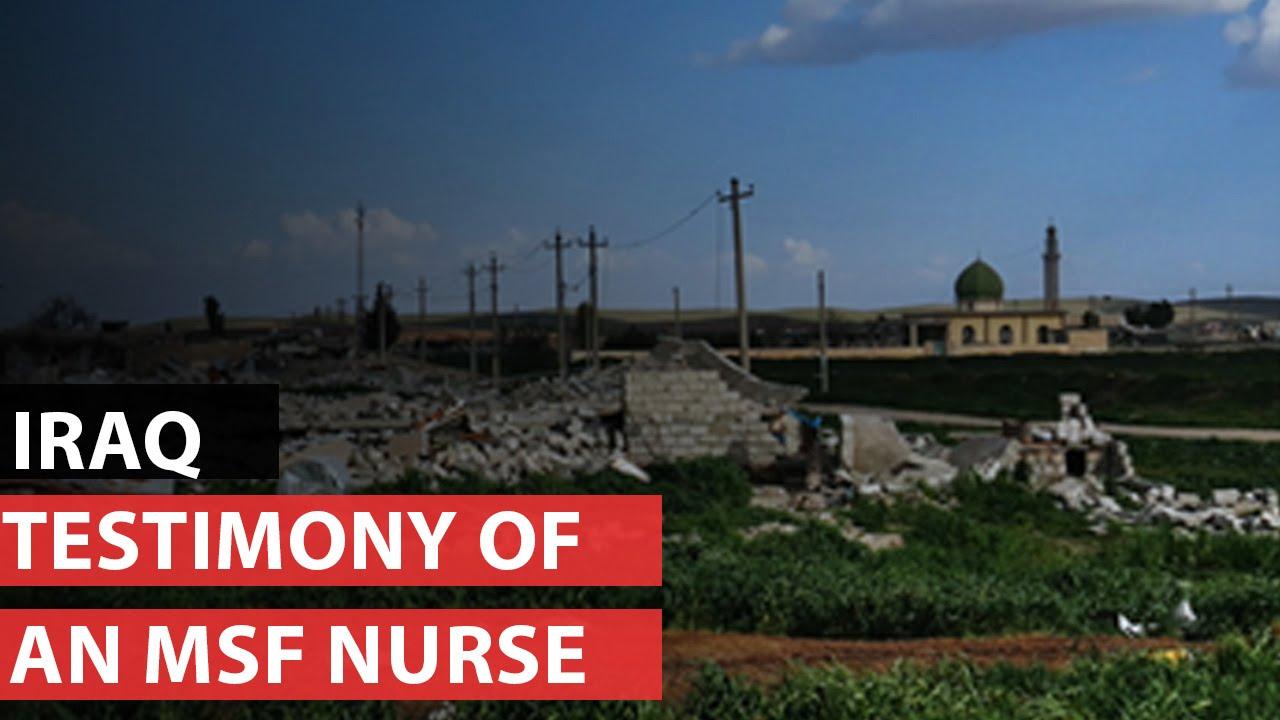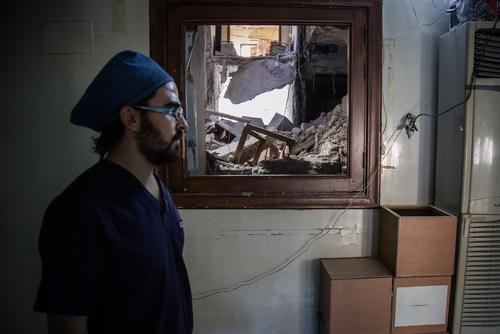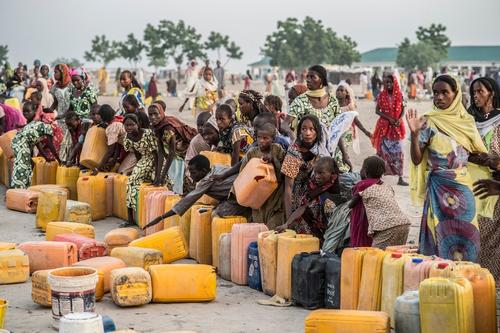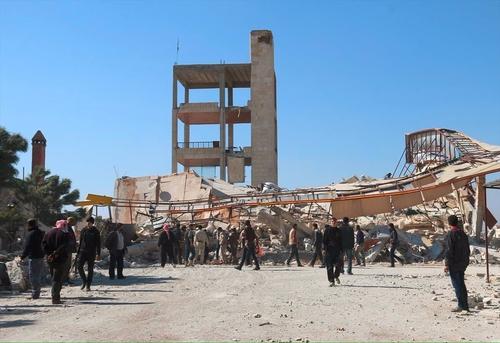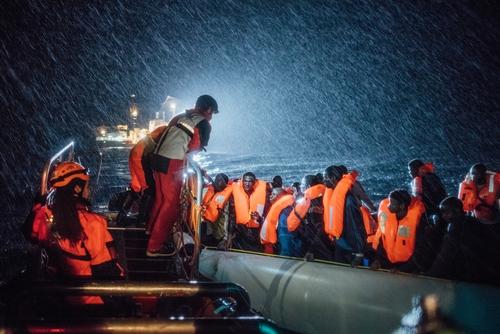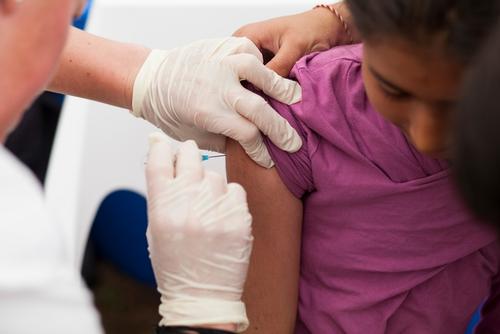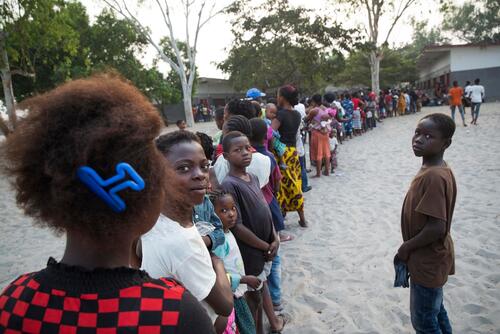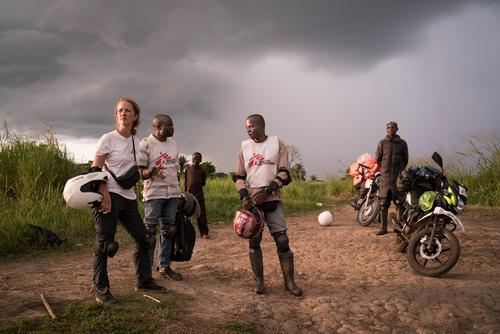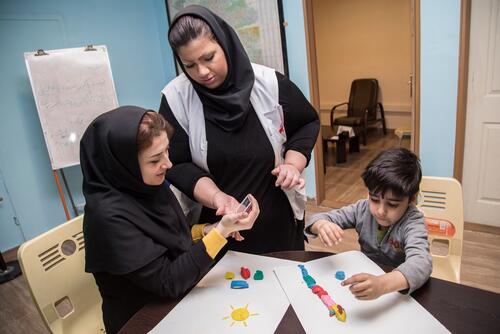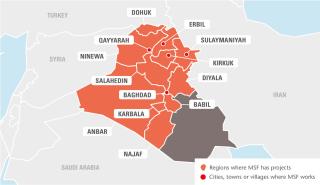
133,000
133,
1,300
1,3
Since 2014, over 3.3 million people have been displaced across the country, and while many have found their way to camps, others are living in schools, mosques and unfinished buildings. Throughout 2016, there was constant movement, with people either fleeing from battle zones or returning to newly retaken areas. Around 190,000 people were displaced from Mosul and the surrounding area in the last three months of the year, and as many as 1.5 million had returned to their place of origin by December. All these people, living in unstable areas, often near frontlines, face ongoing challenges, including insecurity and a lack of access to basic services and healthcare.

Scaling up to meet growing needs
MSF steadily increased its response during 2016, deploying teams to work across 11 governorates to provide emergency and basic medical care, including maternal care and mental health services, as well as providing essential relief items to displaced families, returnees, impoverished host communities and Syrian refugees.
With military operations expanding in north-western Iraq, thousands of people continued to flock to relatively safer areas, including Salaheddin governorate in the centre of the country. As local authorities and international aid organisations were unable to cope with the influx, MSF started to run mobile clinics in the city of Tikrit and the surrounding areas in August. Since the start of the project, 15,339 consultations have been conducted.
In Al Anbar province, MSF opened a secondary healthcare centre in Amriyat Al Fallujah camp, which hosts around 60,000 Iraqis displaced by conflict in Fallujah and Ramadi.
In October, MSF teams in Kirkuk governorate started to provide healthcare, including psychological and psychosocial support, for displaced people and war-wounded patients from Hawija district. They also ran mobile clinics offering primary healthcare, first aid and emergency referrals to hospitals in Kirkuk city.
In November, MSF mobile teams were deployed to new camps set up west of Erbil to accommodate people fleeing the battle of Mosul. As well as primary healthcare, they provided treatment for chronic diseases, and psychological and psychiatric care.
In Qayyarah, to the south of Mosul, MSF set up a hospital with an emergency room, an operating theatre and a 32-bed inpatient department. During the first month, the hospital treated over 1,000 emergency patients and carried out more than 90 surgical interventions.
Teams also worked in a field surgical unit and advanced medical posts in unstable areas around Mosul, stabilising patients, performing surgery and sending them to referral hospitals when needed.
Mental health activities
This year, MSF focused on increasing psychological support for the growing number of people who have been traumatised by the recurrent violence and their precarious living conditions. Mental health and psychosocial support are an integral part of most of MSF’s projects in Iraq, for both Iraqis and Syrian refugees. In 2016, the mental health teams provided a total of 23,620 consultations.
Maternal healthcare
During 2016, MSF continued to run its existing maternity clinic in Domiz camp for Syrian refugees and opened a new one in the village of Tal Maraq, Ninewa, as a significant number of women in this area deliver at home without the help of skilled birth attendants. In the first three months, the team assisted over 400 deliveries. The clinic offers basic emergency obstetric and neonatal care, manages minor obstetric complications, and refers patients with more serious obstetric problems to hospital.
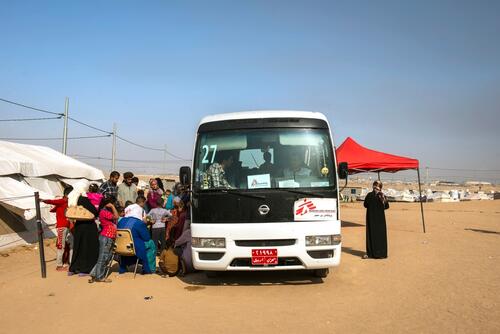
Support to Ministry of Health hospitals
In Sulaymaniyah governorate, MSF supports the emergency hospital, providing hands-on training to improve the quality of medical services in the intensive care unit and the emergency trauma ward. In addition, MSF teams work in the emergency rooms in Kirkuk and Azadi hospitals, focusing on triage and staff training.
Project closures
The primary healthcare centre in Bzeibiz, a town on the border between Baghdad and Anbar governorate, was closed in November as displaced people from Anbar started to return home and patient numbers decreased. Between February and October 2016, MSF provided around 9,000 medical consultations.
During the second half of the year, the mental health programmes in Babil, Karbala and Najaf were scaled down and suspended as teams explored new approaches to mental health and psychosocial support.
